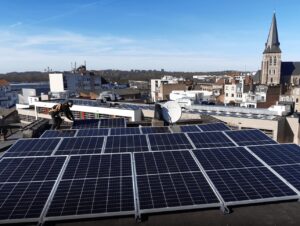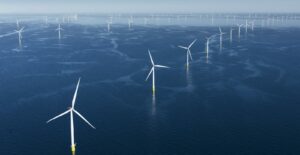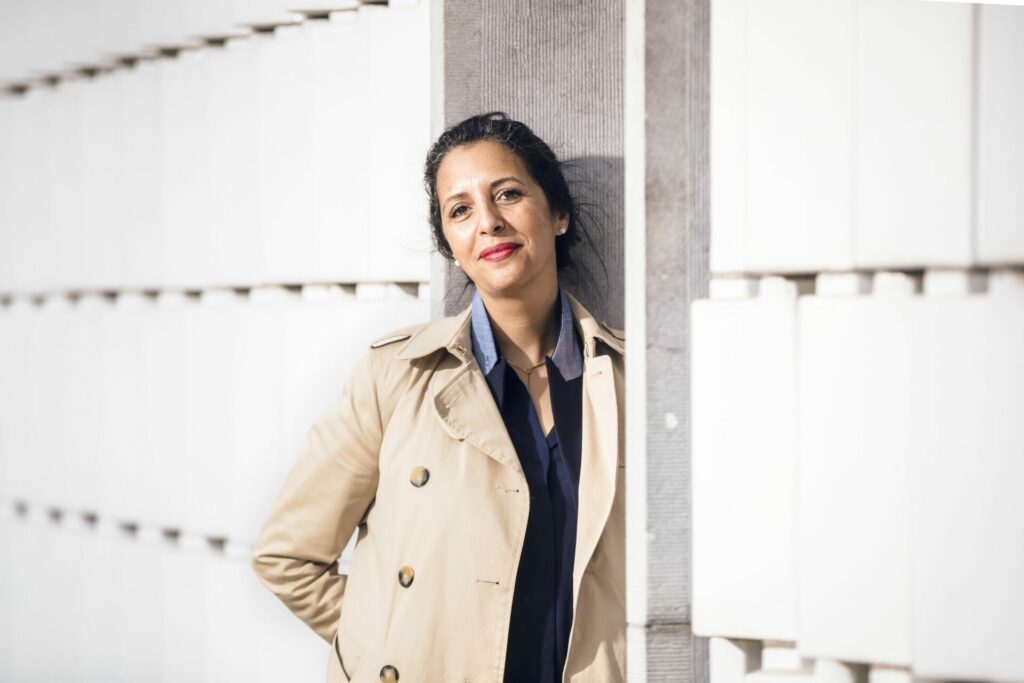Belgian politics is at first glance an indecipherable labyrinth of different levels of governments and laws. But it does not have to be this way! Check back in regularly with The Brussels Times as we try to shine some light on matters.
In an attempt to help the uninitiated navigate such a complex system, we will be speaking regularly with politicians from the regional, national and European level. They will give us a taste of what they do and how their small piece fits into the bigger jigsaw puzzle that is Belgium. If there is a particular topic you would like us to put to those in power, get in touch!
Federal Minister of the Climate, Environment, Sustainable Development and Green Deal Zakia Khattabi has an increasingly busy workload, as green policies become more important and numerous with each passing week. She answered questions about some of the main initiatives and policies that are currently in the works.
The UN’s new IPCC report again highlighted how radical changes must be made to energy and climate policies worldwide to prevent catastrophic global warming. Is it frustrating that this warning has once again been given relatively little attention?
The report certainly deserved more attention, especially as it deals with the solutions to climate disruption. The IPCC actually recommends an approach like Europe's Green Deal with a climate law for investment security, clear targets and policies in all sectors. It says that the transition will cost much less than the climate disruption of more than 2°C warming. But it also notes that the world is not yet on track to prevent 1.5°C. It is therefore crucial that emerging countries such as China tighten their climate targets during this year in view of the next climate summit in Egypt this autumn.
Is it also frustrating that Belgium is being prevented from supporting higher climate ambition by the Flemish government?
Yes, it is. It is not because of the Flemish government, but only because of a party in that government - the Flemish nationalists N-VA - that all of Belgium cannot take a progressive stand. For nearly everything I want to do at European or international level, consensus is necessary with the three regions. Systematically the N-VA puts the brakes on. However, I will try to find some common ground until the end of my term.
Belgium has a complicated political structure. What does this imply for the energy policy of Belgium?
Energy is a shared competence between the federal government but regional ministers have a very important role to play in promoting renewable energy.
Renewable energy is an important aspect of the Green Deal. What are the main hurdles to Belgium doing more? Planning permits? Investment?
Controlling demand, for example through energy renovation of buildings, is just as important as making the supply more sustainable. With an energy transition, we should also not forget about decentralised energy production, which will entail far fewer obstacles in terms of permits. Permitting is indeed one of the main obstacles, as is the construction of grid infrastructure and the sometimes variable support schemes of regional governments.
Regarding the granting of permits, the federal government has recently decided to make efforts to ensure that the appeal procedures with the Council of State can be completed as smoothly as possible. In parallel, we will make it possible to install wind turbines in new areas, for example, closer to airports and military areas

The government is trying to incentivize citizens and companies to install solar energy through favourable taxation, such as reducing VAT.
What are the government’s plans in relation to solar power? Are existing incentives for private households to install solar panels enough or is more possible?
The competence for terrestrial renewable energy and therefore also for solar energy lies with the regional authorities. For our part, we have made taxation more favourable through a temporary VAT reduction and accelerated the deployment of solar installations on public buildings.
Belgium and Brussels in particular has some effective building renovation schemes. Given that buildings use so much power, produce so many emissions, can we expect to see more renovation schemes and more financial resources for them soon?
Building renovations are also a regional responsibility but here again, the federal government is making a further effort with its levers such as taxation. We have reduced the VAT on demolition and renovation, we are reviewing the green investment allowance for companies and we are in the process of negotiating a cooperation agreement with the regions on, among other things, the distribution of income from emissions trading. We are talking about hundreds of millions of euros that, in my opinion, should go to vulnerable families to help them renovate their homes.
Does Belgium need more energy interconnectors to link it to its neighbours, so power can be shared more easily? For example, Germany just announced its first energy link with the UK.
We already have interconnections to all the neighbouring countries and a lot of import capacity. Future network development will focus on bringing in large amounts of electricity from offshore wind farms, including with a hybrid interconnection with Denmark.

Renewable energy from onshore and offshore wind production, together with solar power, accounted for nearly 20% of the total electricity generation mix last year.
Does the Belgian government intend to launch any extra public awareness campaigns for climate and energy? For example, turning down thermostats by one degree.
The federal government recently launched an information campaign with five simple and tangible measures to reduce energy consumption. At the same time the federal government has adopted a broad package of measures within its jurisdiction to reduce its dependence on fossil fuels. These include more wind at sea, more windmills near airports and military areas, faster procedures, zero-emission mopeds, VAT discounts for solar panels and heat pumps, and more.
Transport is a huge climate issue: the motorway speed limit was recently temporarily reduced. Is that a measure that could become permanent?
I support that and the International Energy Agency is recommending it as well. But there is not yet a consensus within the relevant governments at this time.
You recently called for policies to address the scarcity of raw materials more effectively. What is Belgium doing in particular to address this?
Indeed, I also advocate for a more strategic approach to our increasing reliance on virgin materials. Increasing levels of consumption lead to higher usage of virgin materials. More than 90% of these virgin material is harvested or cultivated outside of Belgium.
This presents environmental, economic and social risks. For example, the much-needed energy transition can be undermined by a shortage of metals needed for the production and storage of renewable energy. Resource shortages can drive up prices, jeopardise the competitiveness of our businesses, and cause financial problems for low- and middle-income families.
It also leads to growing inequality around the world, possibly leading to more conflicts. So we’re trying to build more governmental capacity to anticipate resource shortages in the short-term and long-term.
We are developing policies to tackle them and support research in design for scarcity and circularity and in the social effects of the transition to a low carbon, circular economy that restores rather than destroys biodiversity.

